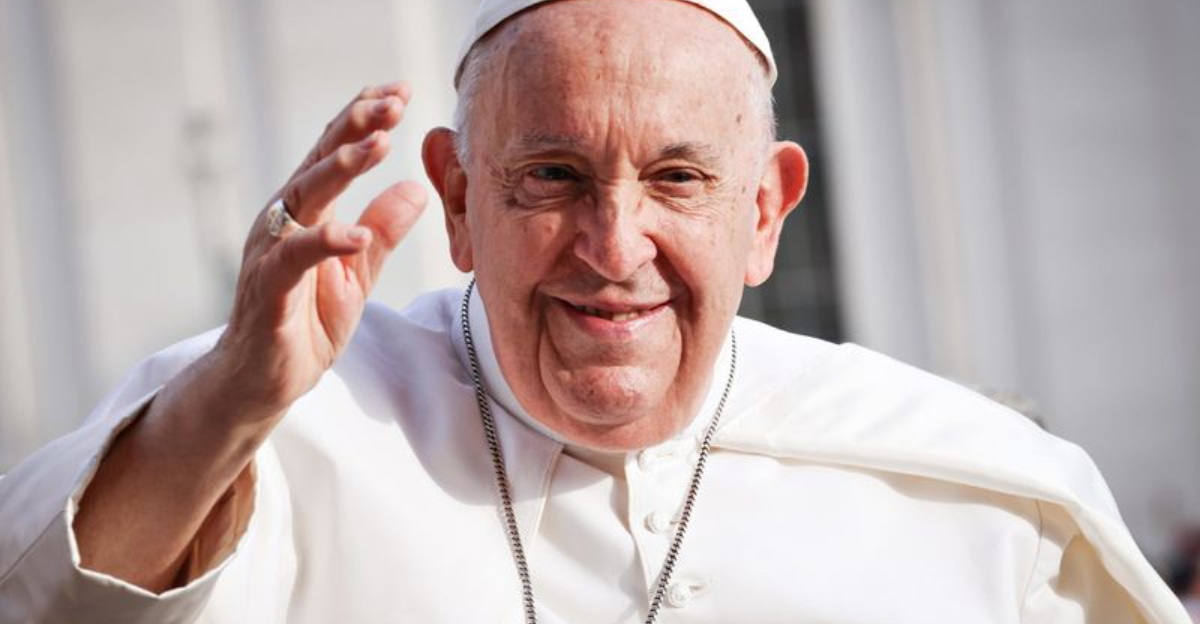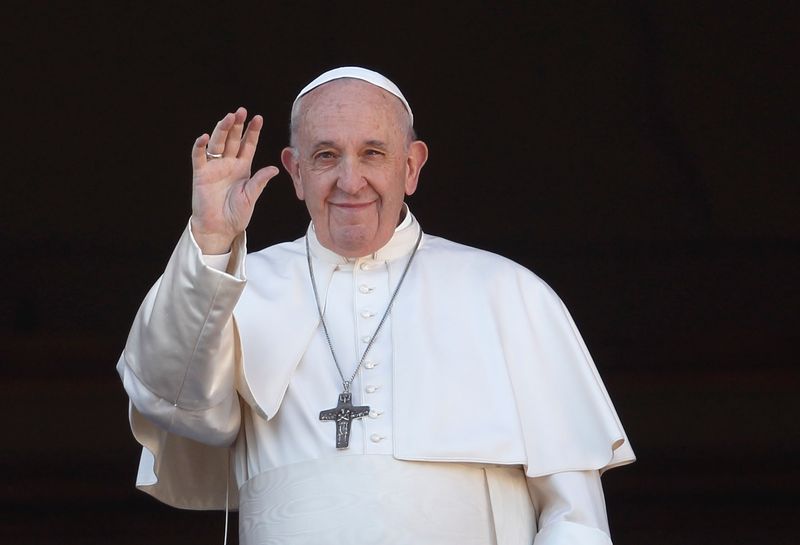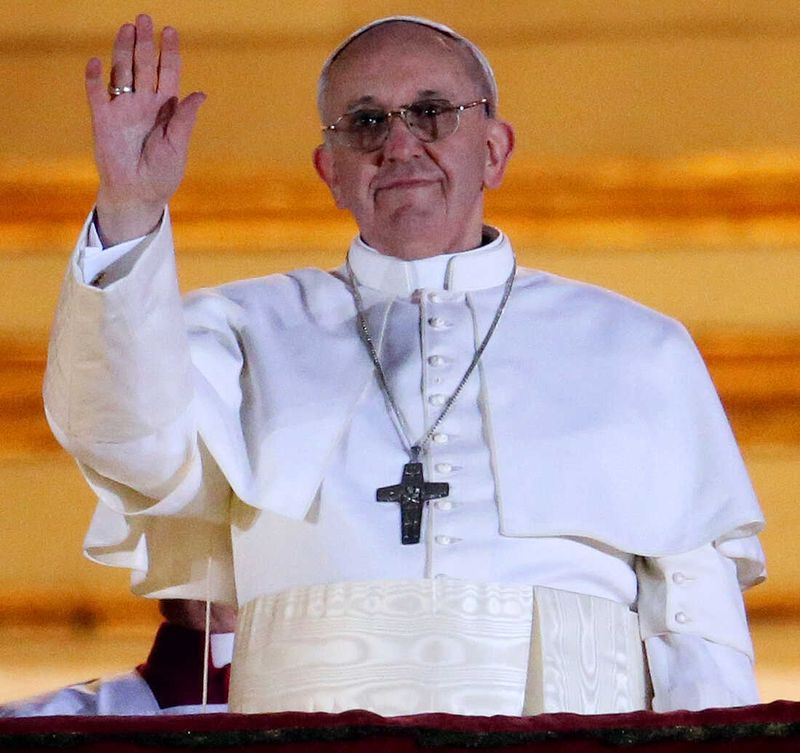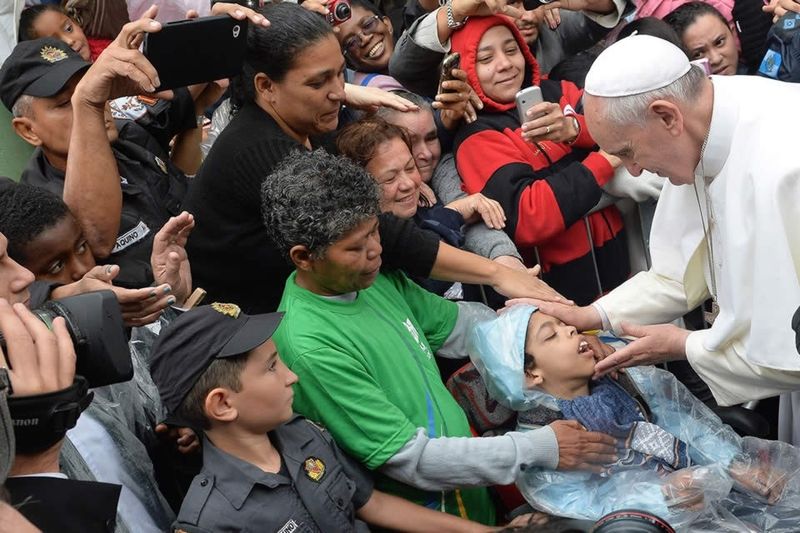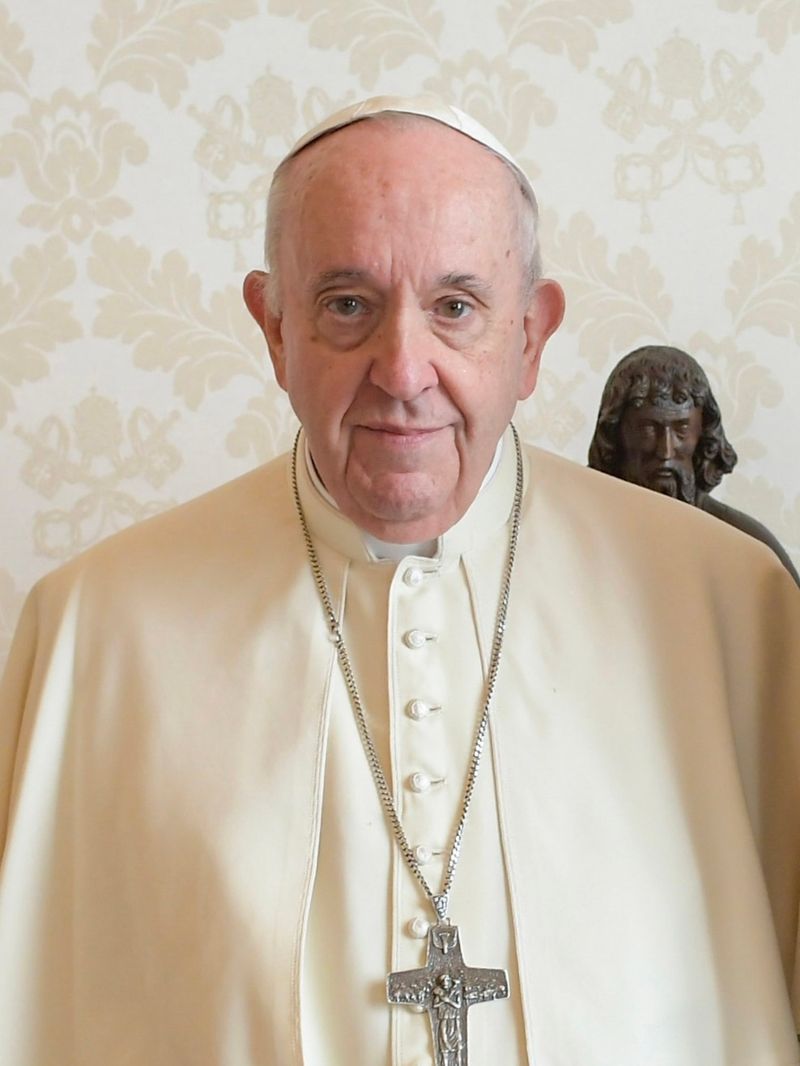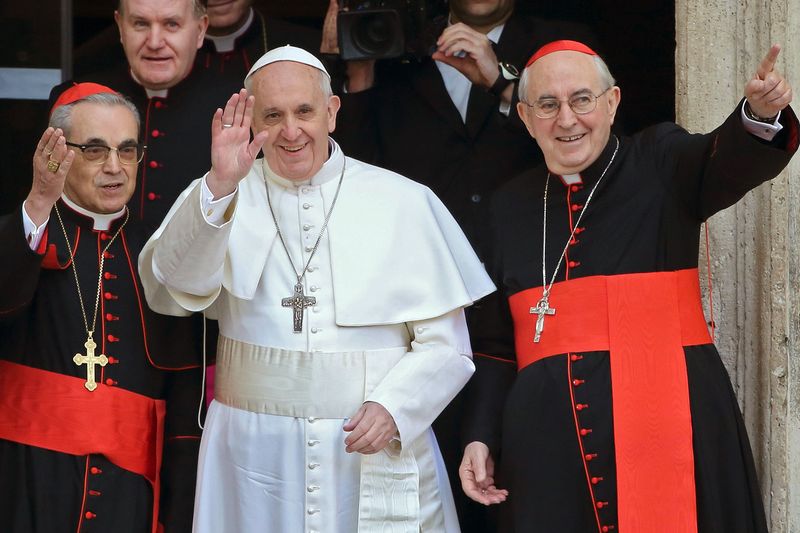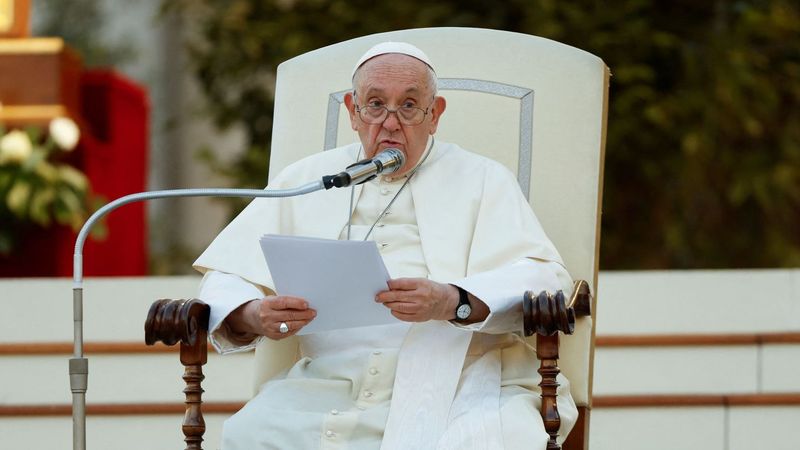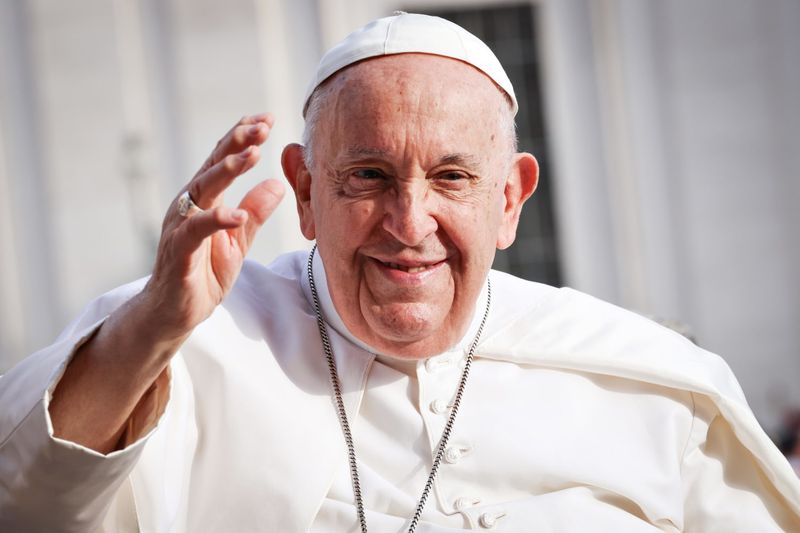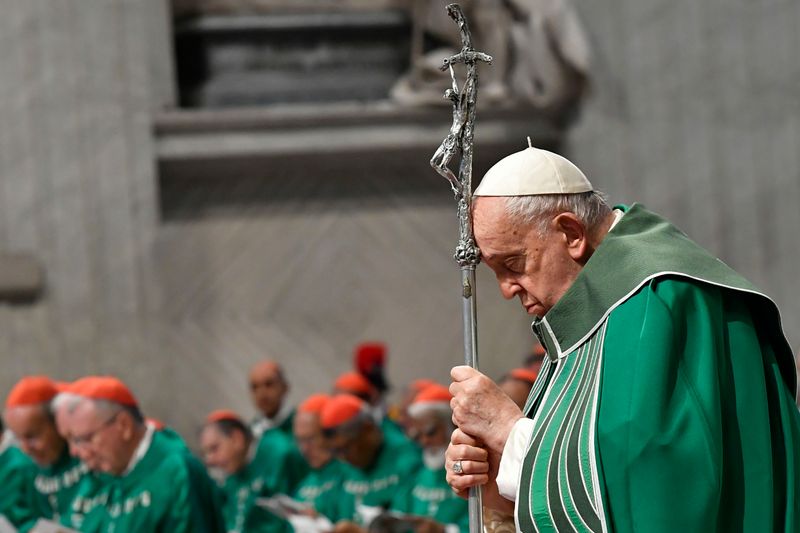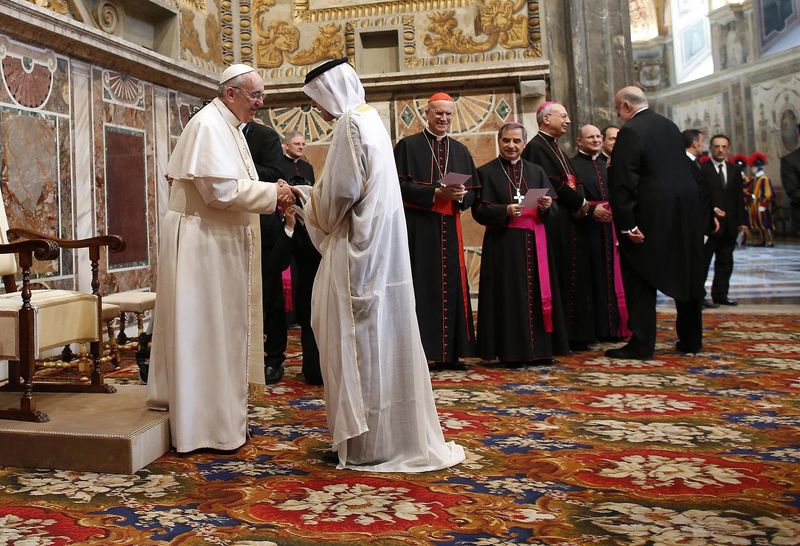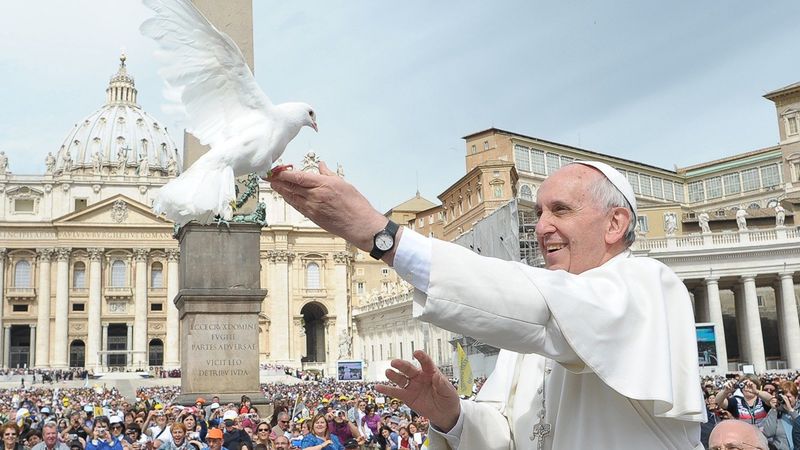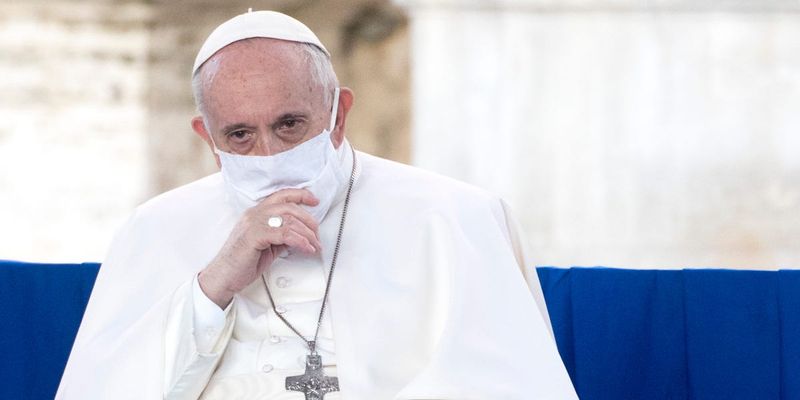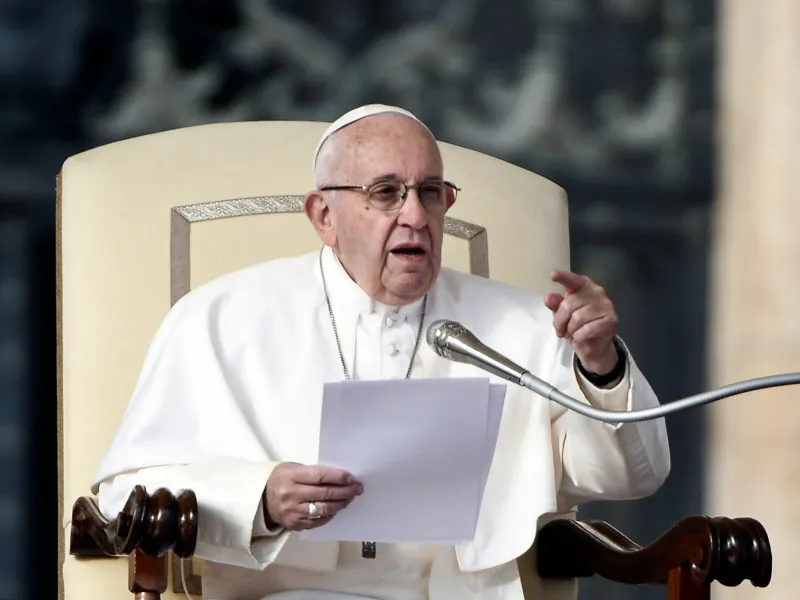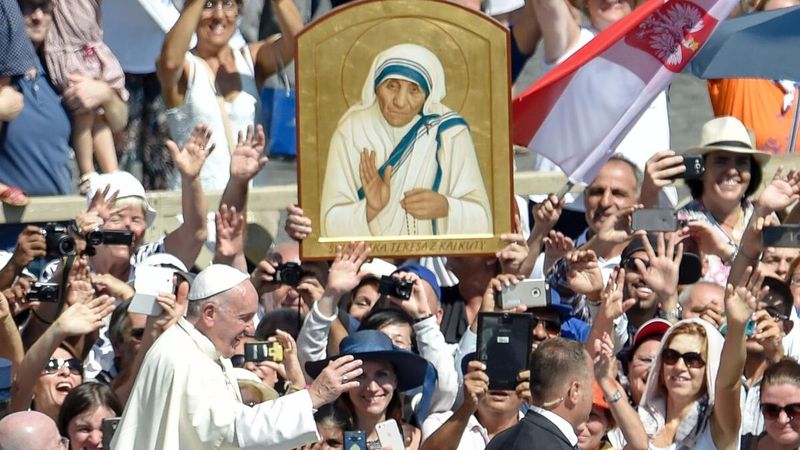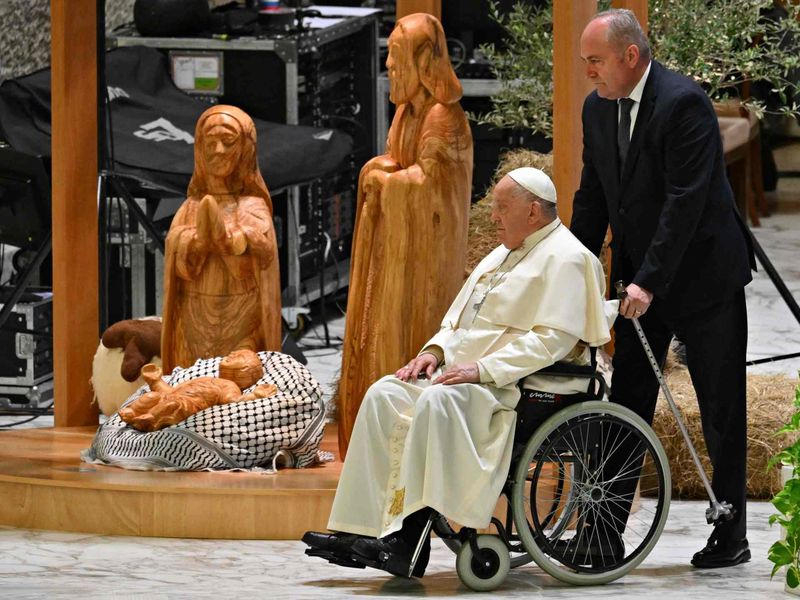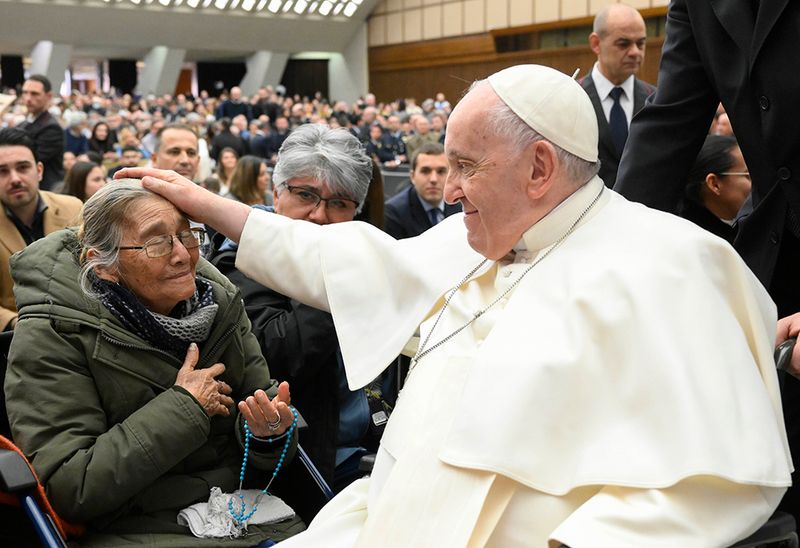Pope Francis, born Jorge Mario Bergoglio, passed away at 7:35 a.m. in Vatican City due to pneumonia complications. He was 88.
The first Jesuit and Latin American pope, Francis was a global symbol of humility, compassion, and reform. His papacy broke barriers and championed the poor, the planet, and the marginalized.
As the world mourns, we look back at 15 defining moments that shaped his remarkable legacy.
1. First Jesuit Pope in History
Pope Francis broke with tradition by becoming the first Jesuit pope in history. Known for their intellectual rigor and commitment to education, the Jesuit order brought a distinct perspective to the papacy. His Jesuit background influenced his approach to leadership, emphasizing discernment, humility, and social justice. His election signified a shift towards a more inclusive and global Church, resonating with many who felt disconnected from traditional Catholic hierarchies. This unprecedented choice marked a new chapter for the Vatican, reflecting a broader vision for the Church’s future. It was a momentous occasion celebrated worldwide.
2. First Pope from the Americas
Hailing from Buenos Aires, Argentina, Pope Francis was the first pontiff from the Southern Hemisphere. This historic milestone brought a fresh perspective to the papacy, as it represented the growing influence of the Global South in the Catholic Church. His Latin American roots fostered a deeper connection with the region’s faithful, many of whom face poverty and social inequality. By elevating a leader from this part of the world, the Church acknowledged the diverse backgrounds of its followers. This decision resonated with many and highlighted the universality of the Church.
3. Champion of the Poor
Known affectionately as the ‘Pope of the People,’ Francis tirelessly advocated for the marginalized. His call for a ‘poor Church for the poor’ resonated globally, as he consistently highlighted the plight of the underprivileged. He encouraged wealthier nations to support those in need and criticized the excesses of capitalism. His dedication was evident in his visits to impoverished communities and his emphasis on social justice issues. By focusing on the less fortunate, he injected a sense of urgency and compassion into the Church’s mission, inspiring many to act in solidarity.
4. Chose a Humble Name
Upon his election, Jorge Mario Bergoglio chose the name Francis, inspired by St. Francis of Assisi, a saint renowned for his humility and devotion to nature. This decision was rich with symbolism, signaling his commitment to simplicity, peace, and caring for creation. The name choice was a departure from tradition, reflecting his desire to lead a papacy rooted in compassion and service. It resonated with millions, symbolizing a new era of papal leadership focused on humility and the common good. His choice spoke volumes about his vision for the Church.
5. Lived Simply
Pope Francis was known for his simple lifestyle, rejecting the opulent papal apartments in favor of a modest guesthouse. He also chose to drive a simple car instead of a luxurious vehicle. These choices exemplified his commitment to humility and a lifestyle aligned with his teachings. His preference for simplicity endeared him to many, painting a picture of a leader who lived by example. This approach was a refreshing departure from past papal grandeur and highlighted his dedication to being a relatable and grounded spiritual guide for the faithful.
6. Major Climate Advocate
In 2015, Pope Francis issued an encyclical titled ‘Laudato Si’,’ calling for urgent climate action and care for our common home. This groundbreaking document marked a first in Church history by framing environmental stewardship as a moral imperative. His appeal reached beyond the Catholic faithful, resonating with global audiences concerned about climate change. He emphasized interconnectedness, urging collaboration across faiths and nations to combat environmental degradation. His advocacy was a clarion call for action, highlighting the ethical dimensions of environmental issues and inspiring many to reconsider their relationship with the planet.
7. Open Approach to LGBTQ+ Issues
Pope Francis introduced a more inclusive tone towards LGBTQ+ individuals, famously stating, ‘Who am I to judge?’ when asked about gay Catholics. While maintaining Church doctrine, his words signaled a shift in tone, emphasizing respect and acceptance. This approach was warmly received by many who felt alienated by previous Church stances. By promoting dialogue and understanding, he opened doors for more compassionate conversations within the Church. His statements encouraged a broader reflection on acceptance and love, aligning with his overall vision of a more inclusive and empathetic Church community.
8. Synod Reformer
Pope Francis reformed the synod process, empowering global bishops and laity to partake in a more collaborative approach to decision-making. He aimed to make the Church’s governance more synodal, fostering dialogue and inclusivity. This new model allowed diverse voices to contribute to critical discussions, promoting transparency and participation. His efforts were seen as a democratization of Church processes, aligning with his vision of a more engaged and responsive institution. By encouraging open dialogue, he cultivated a culture of listening, where diverse perspectives could be shared and considered in shaping the Church’s future.
9. Outreach to Other Faiths
Pope Francis made significant strides in interfaith dialogue, reaching out to Islamic, Jewish, and Orthodox communities. His historic trip to Iraq in 2021 was particularly noteworthy, where he met with religious leaders to promote peace and understanding. These efforts were part of his broader vision to build bridges between faiths, fostering mutual respect and collaboration. His outreach encouraged dialogue and cooperation, breaking down barriers and promoting unity. By engaging with other religions, he demonstrated a commitment to peace and the shared values that unite humanity, highlighting the importance of interreligious dialogue in today’s world.
10. Tireless Peacemaker
Throughout his papacy, Pope Francis was a relentless advocate for peace, calling for dialogue and negotiations in conflict zones. From Syria to Ukraine to Myanmar, he consistently urged for ceasefires and peaceful resolutions. His passionate appeals resonated globally, as he used his influence to bring attention to humanitarian crises. His efforts underscored the Church’s role as a peacemaker, encouraging nations to pursue diplomatic solutions over violence. By shining a light on these conflicts, he inspired hope for reconciliation and showed that peace is achievable through understanding and cooperation, even in the most challenging circumstances.
11. COVID-19 Response
During the COVID-19 pandemic, Pope Francis emerged as a crucial moral voice, advocating for vaccines, global solidarity, and care for the vulnerable. His messages of hope and unity resonated with a world in crisis, encouraging collective action to combat the pandemic. He emphasized the importance of community and caring for one another, highlighting the need for compassion in times of uncertainty. His leadership during this challenging period underscored the Church’s commitment to social justice and the common good. Through his words and actions, he inspired many to act with empathy and solidarity.
12. Revamped the Vatican’s Finances
Pope Francis introduced significant financial reforms within the Vatican, aiming to increase transparency and accountability. His efforts addressed longstanding issues in the Church’s financial systems, promoting ethical management and reducing corruption. By implementing these changes, he demonstrated a commitment to integrity and responsibility within the Vatican. His reforms were part of a broader effort to modernize the Church, ensuring its financial practices aligned with its moral teachings. These changes were welcomed by many, as they reflected a genuine desire for reform and renewal, promoting trust and confidence in the Church’s governance.
13. Canonized Influential Saints
Under his papacy, Pope Francis canonized many influential figures, including Mother Teresa and Pope John Paul II. These canonizations celebrated individuals who made significant contributions to the Church and society. By recognizing their sainthood, he highlighted their virtues and lasting impact, inspiring the faithful to follow their example. These events were joyous occasions, drawing global attention and fostering a deep sense of connection among Catholics. His choices reflected his vision of a Church that honors those who embody love, compassion, and service, reinforcing the values that he cherished throughout his leadership.
14. Global Popularity
Pope Francis maintained high approval ratings globally, appealing to Catholics and non-Catholics alike. His humility, compassion, and progressive views resonated with a broad audience, making him one of the most beloved spiritual leaders in recent history. His ability to connect with people from different walks of life showcased his genuine care and empathy. He fostered a sense of unity and hope, transcending religious boundaries and promoting a message of love and acceptance. His universal appeal was a testament to his impactful leadership and his commitment to building a more inclusive and compassionate world.
15. Left a Lasting Legacy of Mercy
Pope Francis’s papacy was centered on mercy and forgiveness, encapsulated by his mantra that ‘God never tires of forgiving us.’ His teachings emphasized compassion, reminding the faithful of the importance of empathy and understanding. His focus on mercy was evident in his actions and words, encouraging a culture of forgiveness within the Church. This enduring legacy of mercy inspired many to embrace a more compassionate approach to life and faith, reflecting his belief in the transformative power of love and kindness. His message of mercy continues to inspire and resonate globally.
